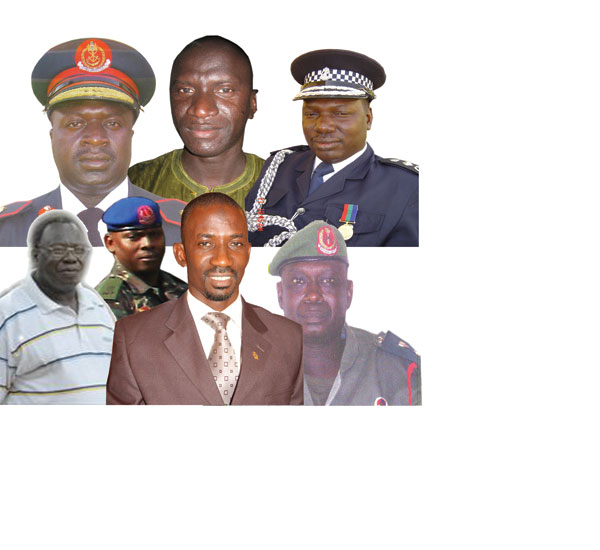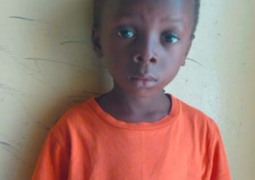
The Gambia Court of Appeal yesterday dismissed the appeal case filed by the jailed ex- Chief of Defense Staff Lt General Lang Tombong Tamba and six others and concurred with the decision of the High Court in Banjul, which sentenced the appellants to death after finding them guilty of treason.
Court of Appeal president Justice Joseph Wowo assisted by two other judges, Justice Na Ceesay Sallah Wadda and Justice J.B. Kalaile, yesterday delivered judgment in the high-profile appeal case.
The other appellants were Brigadier-General Omar Bun Mbye, former Director of Operations and Training at the Gambia Armed Forces, Col. Lamin Bo Badjie, former Chief of the National Intelligence Agency, Modou Gaye, former Deputy-Inspector General of Police, Gibril Ngorr Secka, former Deputy Gambian Ambassador to Guinea Bissau, Lt. Col. Kawsu Camara (alias Bombardier) former Commander of Kanilai Camp and Abdoulie Joof, a local business tycoon.
Delivering judgment, Justice Wowo told the court that the appellants were arraigned before Justice Amadi of the High Court in
He added that the appellants were sentenced to death and, being dissatisfied, filed an appeal at the Gambia Court of Appeal challenging the verdict of the High Court.
The Court of Appeal president read the summary of the evidence of the prosecution, including testimony of the principal witness, Ebrima Marreh, and of Rui Jabbi Gassama, while analyzing the evidence in sequence.
He also read and summarised the grounds of appeal filed on behalf of the appellants by their counsel and of the state respondent, while also further analysing them according to law.
"I have also listened attentively to their briefs," he said, adducing that it was absolutely clear from the preliminary objections raised by both the appellants and the state respondent, and that he agreed with the submission of the state respondent.
Justice Wowo also gave reference to Nigerian law reports to support his judgment, adding that the appellants counsel had abused the process of the court.
After evaluating the grounds of appeal, Justice Wowo struck out some of the grounds of appeal, and also some additional grounds of appeal, saying that they lacked merit and were incompetent.
He finally dismissed the appeal filed by the appellants saying: "The appeal lacks merit, was incompetent and thereby dismissed."
The two other judges J.B Kailile and Justice Na Ceesay Sallah Wadda after the lead judgment was delivered concurred with the Gambia Court of Appeal president's judgment, saying that the appellants have the right to appeal to the Supreme Court of The
Shortly after the judgment, Gibril Ngorr Secka, one of the appellants, was heard saying: "We are innocent, and God is great. We did not do anything."
Readers would recall that the convicts were arraigned at the High Court in
The indictment stated that the accused persons between January and December 2009 procured arms, ammunition, equipment and mercenaries from Guinea Conakry and other places to stage a coup and overthrow the democratically-elected government of The Gambia.
During the course of proceedings at the High Court, the prosecution called 15 witnesses. Following the closure of the prosecution case, counsel representing the accused persons opted to file a no-case-to-answer submission, which was overruled by Justice Amadi, who called on the accused persons to open their defence.
The accused opened their defence and, following completion of the defence testimony, both the defence counsel and state prosecutor addressed the court.
Mood at the Court
Relatives and well wishers of the accused persons were seen crying after the proceedings, while others collapsed.
The accused persons were escorted to the court with legs shackled and hands cuffed amid tight security.
About death penalty
According to records, since independence the death penalty was only carried out once in The Gambia. This was in 1981, after the abortive coup attempt led by Kukoi Samba Sanyang.
The person executed was Mustapha Danso, a convicted paramilitary officer, for his part in the killings which occurred during the coup attempt.
However, a few years later, the death penalty was abolished, during the


